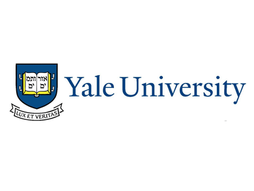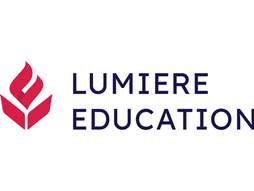Broad Summer Scholars Program (BSSP) - Our Review
If you’re interested in science, especially the natural sciences, then consider applying for a research internship during the summer. Research programs help you gain invaluable experience in research methodology, understand how laboratories function, and learn from scientists who work in the field.
What’s more? they show demonstrated interest in your college application, and you will likely have a project to add to your portfolio by the end of the program!
With this in mind, we recommend highly ambitious students interested in the life sciences consider applying to the Broad Summer Scholars Program. Here, we’ll cover what the Broad Institute is all about, what the program looks for in young researchers, the pros and cons of applying, and our review of the program!
What is the Broad Institute?
The Broad Institute is a collaborative initiative by Harvard and the Massachusetts Institute of Technology to further genomic medicine. The Broad works with faculty labs in both universities and researches human disease, gene editing, and inventing new life-saving tools. The Broad scientists are some of the best in the world — they helped create the Human Genome Project, an international research project to uncover what human genes are made of. Some cutting-edge research conducted at Broad includes restoring vision in mice through gene editing, using AI to identify a new class of antibiotic candidates, and gene editing to treat spinal muscular atrophy — all done in the last year! A unique feature of the Broad Institute is its “Broadies,” a platform that connects scientists both at Broad and at Harvard and MIT and other partner institutions.
What is BSSP all about?
The Broad Summer School Program is for students deeply interested in biomedical research and genomes. During this six-week program, Broad scientists mentor students and oversee their work while they conduct original research projects in cancer biology, psychiatric disease, chemical biology, computational biology, infectious disease, and other related areas. BSSP also holds sessions on exploring scientific careers, lets students attend seminars by scientists, conducts college admission prep, and teaches students how to make scientific posters to present their work.
What does the program cost?
Nothing! The Broad pays students attending the summer program a stipend of $3,600.
How prestigious is the program?
BSSP is highly selective and very prestigious. It accepts < 20 students annually and pays them a stipend. Additionally, past alumni have gone on to be Rhodes, Gates Millenium, Fulbright, and Goldwater scholars, won the Intel International Science and Engineering Fair, and achieved other accomplishments.
Who is eligible for the program?
To apply, you must meet the following criteria:
Be a rising high school senior who attends a school in Massachusetts and lives within commuting distance of the Broad.
Have at least a B grade in science and math
Be a U.S. citizen or permanent resident
Additionally, the Broad encourages students from underrepresented backgrounds to apply. This can include students from communities underrepresented in the sciences (Native Americans or Alaska Natives, African Americans, Hispanics, Other Pacific Islanders, people with disabilities), first-generation learners, students from low-income households, and those who show their commitment to diversity and inclusion through extracurricular activities.
What do you need to apply?
To apply for the program, you must fill in the form online. Here, you will have to answer a series of questions describing prior research experience and explaining your motivation to join the program, such as:
about spending your summer at the Broad Institute?
Please indicate up to four areas of research that interest you. For two of the research areas, explain why these areas interest you
Describe any past experience with or interest in computer programming
Describe your main extracurricular activities
Describe your involvement and participation in extracurricular and community activities that address social, educational, or economic disparities in the US, if applicable.
What are you most proud of? This could refer to something in school or something in your personal life
Describe a time when you experienced failure or something didn't go as planned. How did you handle it?
You will also have to provide the contact information of two academic referees.
What are the important dates to keep in mind?
The application deadline for the 2024 cohort is January 22, 2024. Acceptance notifications will be sent in mid-March and the program runs from June 24, 2024, to August 2, 2024.
Here are some pros and cons of applying to the program:
Pros
1. If selected, you will be part of a highly prestigious program
BSSP isn’t easy to get into. Run by Harvard and MIT, it’s highly prestigious and there are < 20 seats available per cohort. You will need to demonstrate high grades, strong extracurricular activities — especially community-oriented work — and, most importantly, be extremely passionate about biomedical research.
2. You get to participate in cutting-edge research and be mentored by some of the world’s best scientists
Scientists at the Broad helped create the Human Genome Project and have dedicated themselves to furthering research in genomic medicine. Being mentored by them will be a challenging but extremely rewarding experience. Additionally, you will be part of cross-discipline research undertaken in MIT and Harvard labs.
3. You earn a competitive stipend
The Broad pays its interns $3,600 for the six-week program, making it more accessible to deserving students who otherwise may have difficulty paying for accommodation, meals, etc. Deserving candidates can also have their transportation costs reimbursed.
4. You could have a higher chance of being accepted if you come from an underrepresented community
BSSP is committed to increasing diversity in the natural sciences and encourages applications from students from underrepresented communities (check out the eligibility section above to see if you fall under such a category).
5. You can get a highly valued recommendation letter
If you impress during the internship, a recommendation letter from your mentor will add great value to your college application.
6. The program gives you access to numerous seminars and workshops
You can attend related scientific seminars, learn how to present your findings, attend college fairs, and engage with industry experts on possible career paths.
Cons
1. You have to be a Massachusetts resident to apply
BSSP only accepts students living in Massachusetts, preferably within driving distance of the Broad, making other students across the U.S. ineligible.
Our review of the program — is it worth it?
The only drawback we find with BSSP is that it is limited to Massachusetts residents. But, If you’re motivated to conduct genome-based research and live in the state, then the program could be a great way to experience working in a laboratory and gain important research skills. Being a part of BSSP connects you with some of the U.S.’ — and the world’s — leading minds in genome research. You will have the unique opportunity to be mentored by a Broad scientist and could even get a recommendation from them! What’s more, you’ll get paid! You’ll end the program with a research project to add to your portfolio. BSSP is a highly competitive and prestigious program that can add a lot of prestige to your college application.
Bonus — the Lumiere Research Scholar Program
If you are interested in doing university-level research in the natural sciences, then you could also consider applying to the Lumiere Research Scholar Program, a selective online high school program for students founded with researchers at Harvard and Oxford. Last year, over 4000 students applied for 500 spots in the program! You can find the application form here.
Also check out the Lumiere Research Inclusion Foundation, a non-profit research program for talented, low-income students.
Kieran Lobo is a freelance writer from India, who currently teaches English in Spain.








